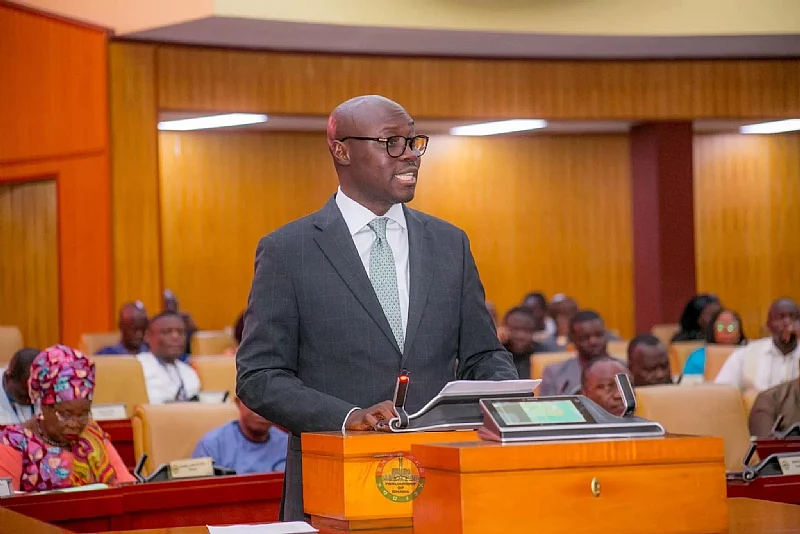Finance Minister Dr. Cassiel Ato Forson has unveiled a bold package of tax reforms under the Value Added Tax (VAT) Act, promising sweeping relief for Ghanaians and a more transparent, equitable tax system.
Presenting the 2025 Mid-Year Budget Statement to Parliament on Thursday, July 24, Dr. Forson laid out key measures aimed at eliminating the cascading effects of multiple levies and reducing the burden on ordinary citizens.
“I would like to reassure Ghanaians that the COVID-19 Levy will be abolished, the Effective VAT Flat Rate will be reduced, the punitive and cascading effects of the NHIS Levy will be removed, and GETFUND will be removed. VAT Flat Rate will be removed, and a unified VAT Rate will be implemented,” Dr. Forson told lawmakers.
He stated that the reforms will be finalised by October 2025 and integrated into the 2026 Budget, marking what he called a major shift in Ghana’s fiscal architecture under the Mahama administration.
According to the Finance Minister, the overhaul forms part of a broader effort to implement prudent macroeconomic policies, modernise domestic revenue mobilisation, and streamline public financial management systems.
Dr. Forson argued that the current structure of VAT and associated levies had become regressive and inefficient, punishing both consumers and businesses with overlapping taxes that drive up prices unnecessarily.
He said the new tax framework would eliminate distortions, encourage compliance, and offer relief to small and medium-sized enterprises while ensuring the state can sustainably fund education, healthcare, and infrastructure.
“These reforms are not just about taxation — they are about fairness, growth, and rebuilding confidence in our economy,” he stressed.
Dr. Forson assured Parliament that a new VAT Bill reflecting these changes will be tabled before the House in 2026 as part of the next budget cycle.
With inflation easing and the cedi strengthening, the Minister said now is the time to remove fiscal inefficiencies that have long distorted pricing and undermined consumer purchasing power.
The announcement was met with cautious optimism from segments of the business community and civil society, who have long called for a simpler and more coherent VAT system to reduce compliance costs and stimulate productivity.
The reforms come at a time when the Mahama-led government is pushing to reset Ghana’s economy through a combination of disciplined fiscal management, targeted investments, and an inclusive growth agenda.


